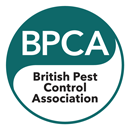Vergo Pest Management Ltd has over 45 years industry experience, offering both commercial and residential customers fast and effective pest control services banishing public health pests.
Some of the most common and typical requirements for washroom hygiene in the UK include:
- Washrooms should be cleaned regularly to maintain cleanliness and hygiene standards. The frequency of cleaning may vary depending on factors such as the level of use, the type of facility, and specific regulations or guidelines.
- Adequate handwashing facilities must be provided, including running water, soap or hand wash, and suitable hand drying options such as paper towels or air dryers. These facilities should be well-maintained and readily accessible to users.
- Toilets should be kept clean and in good working condition. Adequate supplies of toilet paper should be provided, and toilets should be regularly cleaned and sanitised to prevent the spread of germs and maintain hygiene standards.
- Proper waste disposal facilities should be provided for the safe and hygienic disposal of sanitary waste, such as feminine hygiene products. Waste bins should be emptied regularly and lined with appropriate liners to minimise odours and prevent contamination.
- Washrooms should be adequately ventilated to prevent the buildup of unpleasant odors and maintain a comfortable environment for users. Ventilation systems should be regularly maintained to ensure effectiveness.
- They should be accessible to all users, including those with disabilities. Facilities should comply with relevant accessibility standards and provide features such as accessible toilets, grab rails, and signage.
- Cleaning products and equipment used in washrooms should be suitable for their intended purpose and effective in removing dirt, germs, and other contaminants. Cleaning staff should be properly trained in the use of cleaning products and equipment.
- They should be designed and maintained in accordance with health and safety regulations to minimise risks to users. This includes ensuring that floors are kept clean and dry to prevent slips and falls, and that hazards such as loose tiles or exposed wiring are promptly addressed
- Businesses and organisations are required to comply with relevant regulations and guidelines governing washroom hygiene, such as the Workplace (Health, Safety and Welfare) Regulations 1992 and the Health and Safety at Work Act 1974. Failure to meet hygiene standards can result in penalties or legal consequences.






